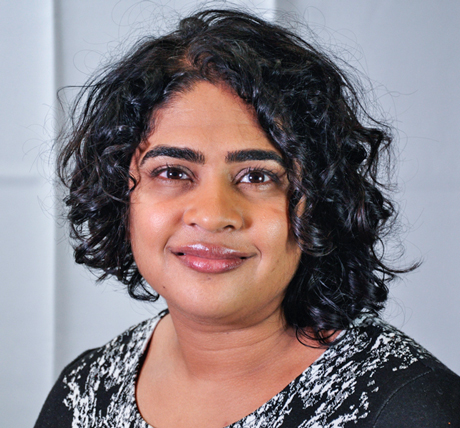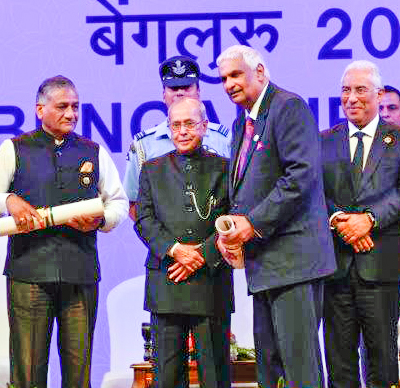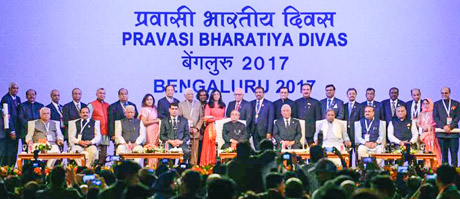poverty, Indigenous Peoples - Mandhane

By William Doyle-Marshall
Renu Mandhane, Chief Commissioner of the Ontario Human Rights Commission sat with me after one year in her new position and admitted “it felt great” being on the job. As the commission’s mandate changed in 2008 from a complaints organization to one that has the luxury of focusing on systemic discrimination, the Commission’s new plan attempts to isolate the areas where it has the most impact in the next five years. They include the criminal justice system, the education system, trying to put a human rights lens to poverty and persistent poverty as well as reconciliation with Indigenous Peoples.
This is giving the commission the chance to take advantage of where Canada is at the moment and that incorporates anti-Black racism and Indigenous racism and look at the systems where those things play out and the kind of impact they are having on people.
The second thing that’s unique around the plan beyond the substance, according to the Chief Commissioner, the body is really trying to position itself as a leading institution in terms of bringing the lived experience of marginalized, vulnerable people into the policy debate. This means, the Commission is looking at how to bring their stories, their voices, and their experiences and make them real for policy makers and decision makers.
“In a way we have struggled with that after the change in the system as we used to have the complaints and the complaints were peoples’ stories. That’s how we knew what was happening on the ground. Once we didn’t have that mandate anymore you have to figure out how are we going to maintain that connection to the real issues and what’s happening in the world and what’s happening in the Province. Over the last year I’ve personally spent and my staff have spent a lot of hours just talking to people so this plan, [it] was the most consultative plan I think the Commission has ever done. We consulted with over 80 community groups, 300 individuals who are all in their own rights, leaders in the community to really ask them what they wanted to see from the commission,” Mandhane informed.
During the process, Commission staff heard a lot from racialized communities including the Indo Canadian community and the Colour of Poverty Group who are concerned about the discrimination issues affecting racialized people. It was determined that racism not only results in those communities’ poverty but it exacerbates their discrimination.
“If you’re poor you have a much greater chance of having interactions with the police, not being able to get housing. We heard that sort of loud and clear that poverty needs to be called out as something that isn’t just homogenous. It is essentially the people who are poor: racialized, single mothers, people with disabilities. So how do we start to make it clear that those are actually the people who are poor,” the Chief Commissioner observed.
Mandhane continued: "From the Indo Caribbean and Black communities about racial profiling and disproportionate use of force by the police and law enforcement and over the last couple of years Ruth Gober who was the Interim Chief Commissioner started this with her really strong work on carding and I think we’ve continued to really start to be a strong voice on racial profiling in the criminal justice system. I think what’s important in the plan is we actually call the priority area, we use the term enforce and I think we are at the point in our work in the sector where we have been working almost for 20 years on racial profiling in policing (the commission’s report in 1993 on Paying the Price) and too little was changed in that time period and I think we are ready to start moving towards litigation and using our inquiry powers to start to really chip away at that really deep seated discrimination in that sector.”
Another of the community’s concern relates to community and youth in terms of the child welfare system but also in the education system.
“We are seeing this playing out at the York Board of Education and in other regions where Black children especially young Black men do not feel like they can get a fair and non-discriminatory education,” the Chief Commissioner observed.
The plan recognizes, what all communities know, especially immigrants and the children of immigrants, that education is everything.
In moving forward Ms Mandhane emphasizes “if you can’t get a decent education, you won’t be able to meet your potential in life”. This fact is the motivation as the commission is purposefully putting a focus on education because as it is really a key towards prosperity and meeting full potential.

Caribbean speakers and presenters at the plenary sessions included: Ashook Ramsaran (Guyana-USA) – session on Consular Services; Dr. Vishnu Bisram (Guyana-USA) and Ravindra Dev Esq (Guyana) – session on Connecting the Diaspora to India; Deoroop Teemal (T&T) – session on Diaspora Organizations.
PBD which was inaugurated in 2003, brings the Indian Diaspora closer to India and to its constituent members. It keeps alive the deep and abiding interest of the Government of India in the wellbeing of the Diaspora with active engagement at various levels such as: the Government of India developing schemes and policies e.g. OIC cards, migrant labour policies, assistance in distress, etc for further engagement thereby strengthening the bonds between India and the Diaspora.
The theme of PBD-2017 was “Redefining Engagement with Indian Diaspora”. Prime Minister Narendra Modi lauded the Diaspora across the world in his inauguration address on January 8.

This year's Chief Guest was Portugal’s Prime Minister Dr António Costa, whose family originated from Goa. Dr Costa remarked that: “It is our duty as members of diaspora, not only to preserve our ties to India, but to strengthen relations between India and the country we live in”.
On the final day of the conference, the Pravasi Bharatiya Samman Award (PBSA), the highest honour conferred on overseas Indians in recognition of their outstanding achievements both in India and abroad, was handed out to 30 recipients. These are Non-Resident Indians, Persons of Indian Origin or an organization or institution established and run by the Non-Resident Indians or Persons of Indian Origin.
Every year since 2003, fifteen overseas Indians have been honoured with this Award annually. But after 2015, the Government decided to hold the event once every two years and, accordingly, the number of awards has been doubled to 30.
Besides this year’s two Caribbean recipients (Ashwin Adhin and Winston Dookeran) the following persons from the region were honoured in past years – Guyana: Sir Sridath Ramphal, President Bharat Jagdeo, Dr. Yesu Persaud, Ashook Ramsaran, President Donald Ramoutar; Trinidad & Tobago: Former Prime Minister Basdeo Panday, Former Vice President Lenny Saith, National Council for Indian Culture (NCIC), Former Prime Minister Kamla Persad Bissessar; Suriname: Former Vice President Ramdein Sardjoe; Jamaica - Kenneth Benjamin.
The next PBD is scheduled to be held in India in 2019. There will also be regional PBDs to be held in different countries.


